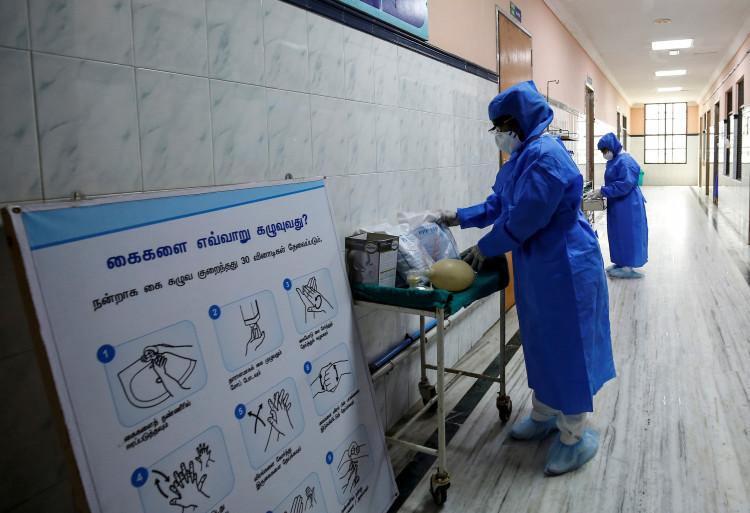Scientists and researchers around the world are scrambling to find out more about the novel coronavirus that has been on a rampage in China and other countries around the world and new studies suggest that there are still many things to be discovered about CoVID-19.
Scientists Discover New Data Regarding Origin Site of CoVID-19
A team of Chinese scientists said in a new study that the coronavirus did not originate in a seafood market in Wuhan, a city in China's Hubei province, the South China Morning Post reported.
The group of researchers from Xishuangbanna Tropical Botanical Garden, a department under the Chinese Institute for Brain Research's Chinese Academy of Sciences, said the CoVID-19 strain was imported to the seafood market.
To come up with the report, the team, led by Dr. Yu Wenbin, studied the genomic data of 93 coronavirus samples across 12 countries. The study then suggested that instead of Wuhan, the strain came from outside the city.
Wuhan's seafood market was where the strain spread quickly but it wasn't where the virus first came from, the study suggested.
The research team also pointed out that discovering in the near future whether the Wuhan seafood market was the only birthplace of the CoVID-19 strain will be of "great significance" to further studies that should help prevent the virus from spreading again.
Some Experts Believe CoVID-19 is Beyond Containment
The race for more answers and a potential cure for coronavirus patients is still on as some experts suggested that containing the virus is beyond the world's control at this point.
Director of the University of Minnesota's Center for Infectious Disease Research and Policy Michael Osterholm said he thinks shutting down infected regions will work in stopping the virus. "It's already out," he pointed out, VOX reported.
Head of the National Institute of Allergy and Infectious Diseases Anthony Fauci also noted that the "spillover to other countries is inevitable." If this is the case, some experts said it's time for global health leaders and governments to move beyond containment.
For some health and infectious disease experts, the focus at this point should be on preparing the world for a potential pandemic, especially after news emerged regarding doubling coronavirus cases in South Korea and new confirmed infections in Iran.
Chinese Case from Wuhan Indicates Challenge Ahead in Stopping CoVID-19
Over the weekend, the case of a 20-year-old woman from Wuhan who traveled to other Chinese city gained the attention of global health professionals and epidemiologists worldwide.
The patient didn't show any coronavirus symptoms, which is why she traveled 400 miles to Anyang. She is believed to have infected five of her relatives, with experts saying that her case is an addition to the existing evidence that the CoVID-19 strain can be spread without signs of infection.
It is also worth noting that the woman initially tested negative of the Wuhan coronavirus. Scientists who presented the case in the Journal of the American Medical Association reiterated that the woman's situation and her family's contraction of the disease is just an indication of asymptomatic transmission.
However, the researchers also pointed out that if another similar case pops up, it could indicate that "the prevention of Covid-19 infection could prove challenging."
Earlier Reports Support New Studies on Coronavirus Infections
Last week, a report by German researchers that was published in the New England Journal of Medicine suggested that even those with little or no signs of coronavirus infection can still prove later on to be infected.
According to the Philadelphia Inquirer, experts are keeping themselves alert for further cases wherein a particular patient shows no signs or minor symptoms of a coronavirus strain but have actually contracted the infection.
The said study was based on tests carried out on German evacuees from Wuhan. Two passengers on board the chartered flight back home tested positive of the novel coronavirus. Only one of the two patients developed a mild sore throat and a small rash seven days into their hospitalization.
Researchers also noted that the cases in Germany could be additional proof that symptom-based screenings may not always be effective in determining the infection on a person who has not developed any symptoms.
The CoVID-19 strain has killed 2,619 people worldwide and has infected over 79,000.





